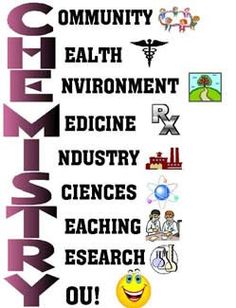When someone mentions Chemistry, we generally think of the complex equations and label it boring. Maybe it is the way the subject is taught in schools that make it uninteresting. But did you know that
all of us come across chemistry in everyday life? You’d be surprised to know that Chemistry is everywhere in the world around you! It’s in the food you eat, clothes you wear, water you drink, medicines, air… you name it. Chemistry is sometimes referred to as the “Central Science” because it connects other sciences, such as biology, physics, geology and environmental science with each other.
Chemistry is a fascinating science, full of unusual trivia! Here are some of the interesting fact related to Chemistry.
Chemistry in our body
We all know Hydrochloric acid (HCL), as a strong acid. However, did you know that our stomach produces HCL? This helps in the digestion of food without harming the stomach.
Our teeth are made up of Calcium Phosphate, which is hardest substance present in our body. It does not dissolve in water but is corroded when the PH in the mouth is below 5.5. Bacteria present in mouth produce acid by degradation of sugar and food particles remaining in the mouth after eating. Using toothpaste for cleaning the teeth, which is generally basic, can neutralize the excess acid and prevent tooth decay. The tingling sensation, crystals, gel are just marketing gimmicks.
Chemistry in our food
Cooking is a chemical change that alters food to make it more palatable, kill dangerous microorganisms, and make it more digestible. The heat of cooking may denature proteins, promote chemical reactions between ingredients, caramelize sugars, etc.
We all are fond of food but, how many of us know that basically we are using chemicals in our food to make it tasty. The most common example is salt, which a chemical, called Sodium Chloride. Baking soda, which is use to bake cakes is also a chemical, called Sodium Bicarbonate. We have numerous uses of Sodium products, but Sodium metal itself is so volatile that it catches fire when it comes in contact with air. That is why it is stored in kerosene oil to prevent it from catching fire.
Chemistry in Automobiles
You’d have seen cars with airbags. But did you know that the airbags inflate in a fraction of a second using a chemical reaction? Automotive airbags contain the supremely toxic salt Sodium Azide (NaN3). In the event of a collision, a signal from the vehicle’s deceleration sensors trigger an electrical impulse which raises the temperature around the salt dramatically, causing it to decompose into harmless Nitrogen gas N2, which rapidly expands into the airbag, inflating it.
The compound Sulphur Hexafluoride (SF6) is five times denser than air but has almost the same refractive index as air and is colorless too. So magicians use it to levitate things.
Chemistry in cleaning
We use chemistry to help decide what cleaner is best for dishes, laundry, yourself, and your home. We use chemistry when we use bleaches and disinfectants and even ordinary soap and water.
As you see, Chemistry isn’t something that just lives in a laboratory; it’s something that you encounter hundreds of times every day. Knowing how chemistry works will give you a greater appreciation of the complex processes behind some of the simplest-looking things.


It works very well for me
Thanks, it’s very informative